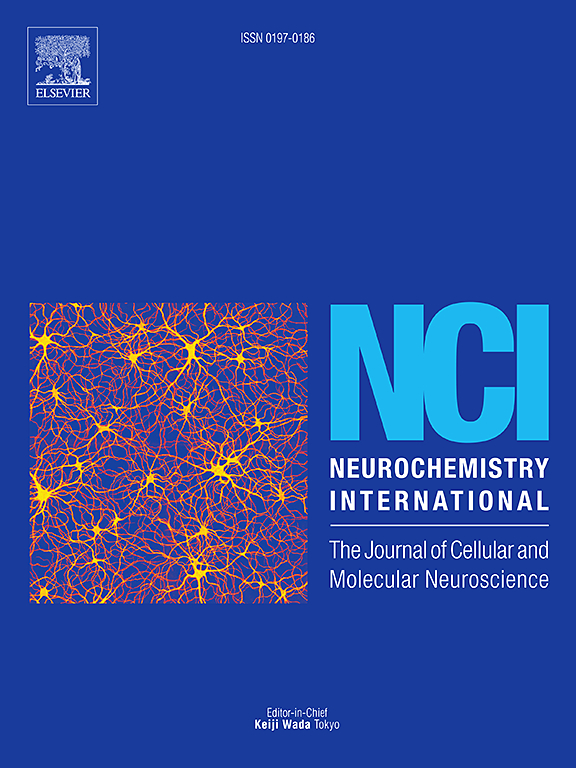Hydrogen restores central tryptophan and metabolite levels and maintains mitochondrial homeostasis to protect rats from chronic mild unpredictable stress damage
IF 4.4
3区 医学
Q2 BIOCHEMISTRY & MOLECULAR BIOLOGY
引用次数: 0
Abstract
Background and purpose
The field of hydrogen medicine has garnered extensive attention since Professor Ohsawa established that low concentrations of hydrogen (2%–4%) exert antioxidant effects. The present study aimed to evaluate the therapeutic effect of molecular hydrogen in a CUMS rat model.
Methods
A total of 40 SD rats were randomly divided into a control group, a model group, a hydrogen group, and a positive drug group. Four weeks post-modeling, hydrogen inhalation and other treatments were administered. Behavioral, biochemical, and immunohistochemical evaluations were performed after treatment.
Results
Hydrogen inhalation alleviated depressive behavior and hippocampal neuronal damage in CUMS rats, as well as restored the levels of neurotransmitters, inflammatory factors, and oxidative stress. Moreover, it maintained mitochondrial homeostasis and up-regulated the expression of PGC-1α, PINK1, and Parkin.
Conclusions
The results collectively indicated that hydrogen significantly attenuated CUMS-induced depressive-like behavior and monoamine neurotransmitter deficiency, as well as protected the brain from oxidative stress and inflammatory damage and effectively preserved mitochondrial homeostasis.
氢恢复中央色氨酸和代谢物水平并维持线粒体稳态以保护大鼠免受慢性轻度不可预测的应激损伤。
背景与目的:自从Ohsawa教授发现低浓度的氢(2%至4%)具有抗氧化作用以来,氢医学领域受到了广泛关注。本研究旨在评价分子氢对CUMS大鼠模型的治疗作用。方法:将40只SD大鼠随机分为对照组、模型组、氢组和阳性药物组。造模后4周,给予氢气吸入等治疗。治疗后进行行为、生化和免疫组织化学评价。结果:氢吸入可减轻CUMS大鼠的抑郁行为和海马神经元损伤,恢复神经递质、炎症因子和氧化应激水平。维持线粒体稳态,上调PGC-1α、PINK1和Parkin的表达。结论:结果表明,氢能显著减轻coms诱导的抑郁样行为和单胺类神经递质缺乏,保护大脑免受氧化应激和炎症损伤,有效维持线粒体稳态。
本文章由计算机程序翻译,如有差异,请以英文原文为准。
求助全文
约1分钟内获得全文
求助全文
来源期刊

Neurochemistry international
医学-神经科学
CiteScore
8.40
自引率
2.40%
发文量
128
审稿时长
37 days
期刊介绍:
Neurochemistry International is devoted to the rapid publication of outstanding original articles and timely reviews in neurochemistry. Manuscripts on a broad range of topics will be considered, including molecular and cellular neurochemistry, neuropharmacology and genetic aspects of CNS function, neuroimmunology, metabolism as well as the neurochemistry of neurological and psychiatric disorders of the CNS.
 求助内容:
求助内容: 应助结果提醒方式:
应助结果提醒方式:


